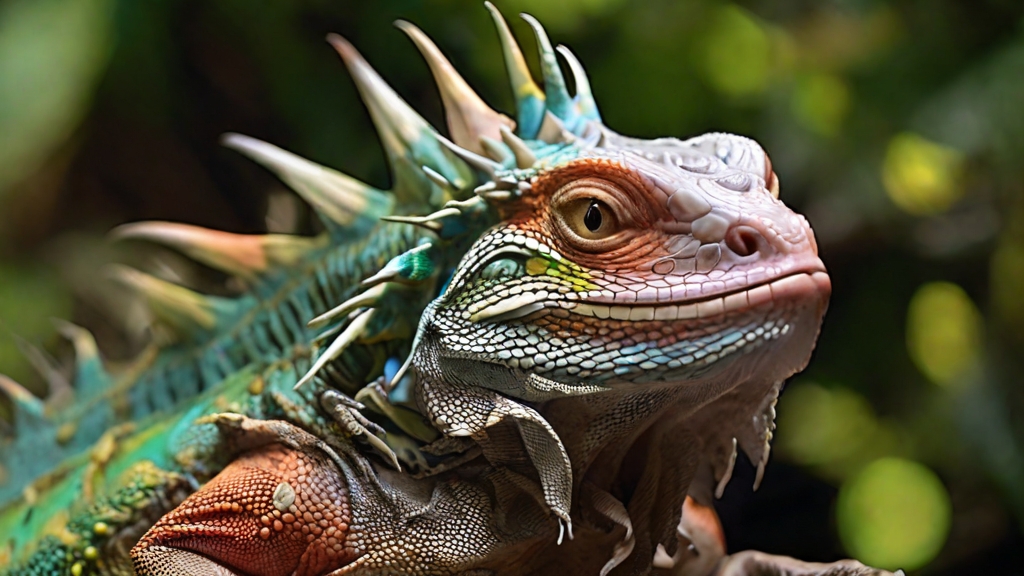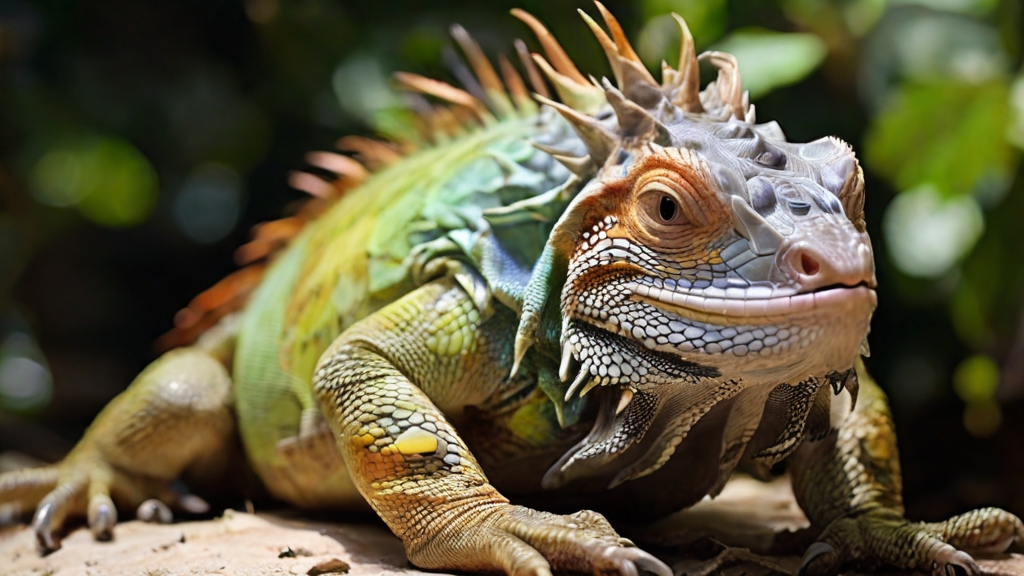Iguanas are a popular choice for exotic pet lovers due to their unique appearance, docile nature, and low maintenance requirements. However, owning an iguana is a big responsibility, and it is essential to understand the species’ needs and behaviors before bringing one home. In this comprehensive guide, we will cover everything you need to know about owning an iguana as a pet.
Introduction
Reasons why iguanas make great pets
Iguanas are fascinating creatures with distinctive personalities. They are easy to care for and require minimal attention, making them an ideal choice for busy pet owners. Additionally, iguanas can live for up to 20 years in captivity, providing a lifelong companion for their owners. They are also relatively low-cost pets, with most expenses associated with setting up their habitat and providing food.
What to expect when owning an iguana
Iguanas are docile creatures that are generally easy to handle and care for. However, they do require a specific environment and diet to thrive. Additionally, iguanas can grow up to six feet in length, which means they need a significant amount of space to roam. Proper care and attention are necessary to ensure your iguana stays healthy and happy.
Choosing the Right Iguana
Common iguana species in the pet trade
Several iguana species are commonly kept as pets, including the green iguana, blue iguana, and red iguana. Green iguanas are the most popular among pet owners due to their availability and affordability.
Factors to consider when selecting an iguana
When choosing an iguana, it’s essential to consider factors such as age, health, and temperament. Younger iguanas are generally easier to train and handle, while older iguanas may have established behaviors that are harder to modify. A healthy iguana should have clear eyes, a healthy appetite, and active behavior.
Housing and Environment
Choosing the right enclosure
Iguanas require a large, secure enclosure that provides ample space for them to move and climb. The enclosure should be at least three times the length of the iguana and provide plenty of hiding spots and basking areas. Additionally, iguanas need access to UVB lighting, which is essential for their health and well-being.
Creating a suitable habitat for your iguana
Iguanas thrive in a warm, humid environment that mimics their natural habitat. The enclosure should be kept at a temperature of 85-95 degrees Fahrenheit during the day and around 75-80 degrees Fahrenheit at night. Humidity levels should be kept around 70-80%, and fresh water should be provided at all times.
Feeding and Nutrition
Understanding an iguana’s dietary needs
Iguanas are herbivores and require a varied diet consisting of fresh fruits and vegetables. Their diet should be high in calcium and low in phosphorus to prevent metabolic bone disease. Additionally, iguanas require access to fresh water at all times.
Recommended foods and supplements
Leafy greens such as kale, collard greens, and mustard greens are excellent sources of nutrition for iguanas. They also enjoy fruits such as strawberries, bananas, and apples. Calcium supplements should be provided to prevent bone disease.
Health and Wellness
Common health issues in iguanas
Iguanas are susceptible to health issues such as metabolic bone disease, respiratory infections, and parasite infestations. Regular veterinary check-ups are essential to catch any health issues early.
Preventative care and routine check-ups
Preventative care such as regular cleaning of the enclosure, providing proper nutrition, and monitoring the iguana’s behavior can help prevent many health issues. Regular veterinary check-ups should be scheduled every six months to ensure the iguana’s health and well-being.
Handling and Training
Proper handling techniques
Iguanas should be handled gently and confidently to avoid stress and injury. They should be supported under their belly and allowed to move freely. Regular handling and socialization can help train iguanas to be comfortable around humans.
Training your iguana to be comfortable around humans
Iguanas can be trained to be comfortable around humans with regular handling and positive reinforcement. Offering treats and praise when the iguana shows positive behaviors can help encourage good behavior.
Conclusion
Final thoughts on iguanas as pets
Iguanas can make great pets for the right owner. However, they require a significant amount of care and attention. Before bringing an iguana home, it’s essential to research their needs and behaviors to ensure you can provide a suitable environment and diet.
Is an iguana the right pet for you?
If you have the time, space, and resources to provide a suitable habitat and nutrition, an iguana may be the right pet for you. However, if you are unable to provide the necessary care, it’s best to consider a different pet.




